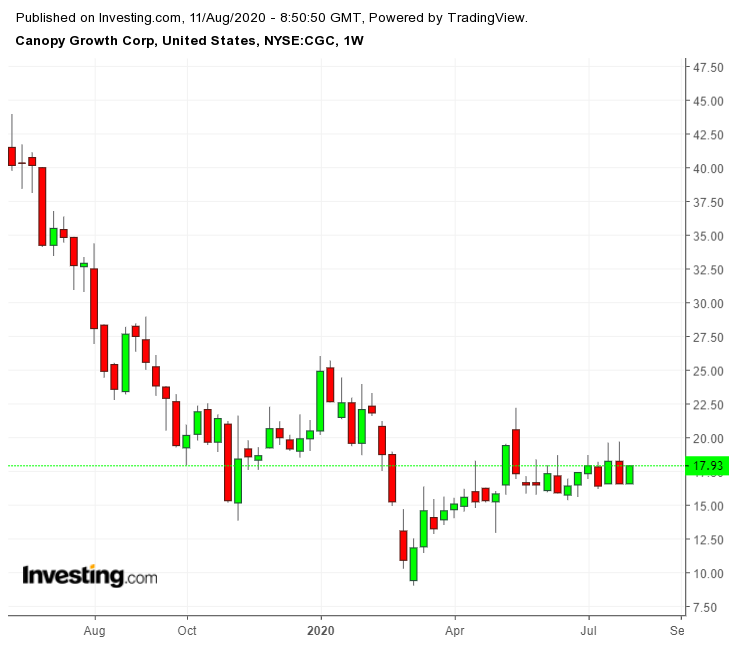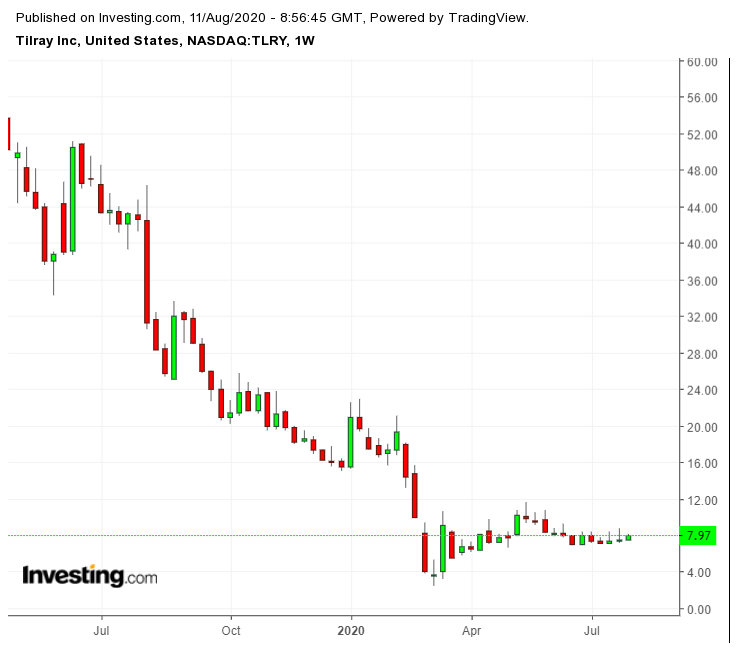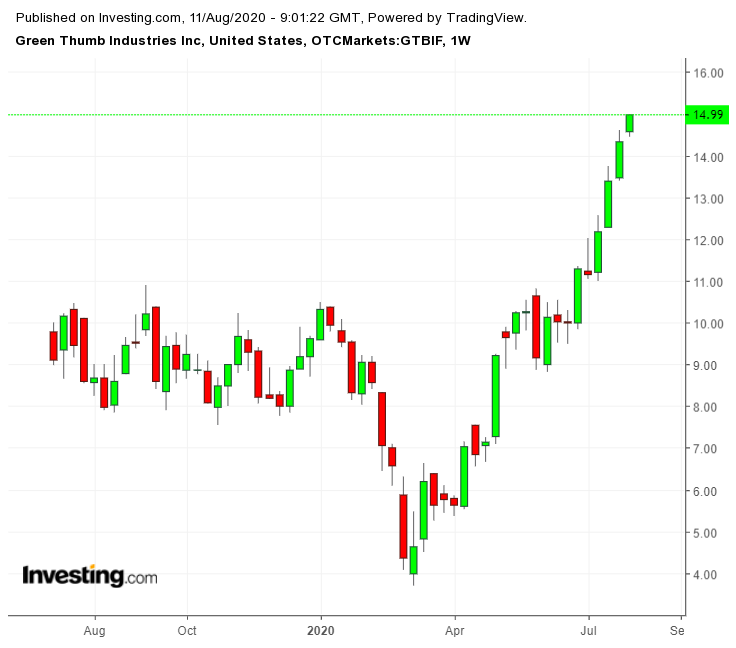Shares of Canopy Growth (NYSE:CGC), (TSX:WEED) received a welcome boost yesterday, gaining more than 7% at the close in both New York and Toronto after reporting first-quarter results earlier in the day that beat analyst expectations.
The Ontario-based cannabis grower—the largest company of its kind by market cap—posted revenue of C$110.4 million (US$82.81 million), a jump of 22% compared with the same quarter in the previous year.
The surge in profits is due mainly to increases in Canopy’s medical marijuana sales, mostly in Canada, but also internationally, despite an 11% drop from its recreational cannabis operations.
Even with the rising revenue, and a string of cost-cutting measures implemented beginning before the pandemic, including cutting 18% of its staff since January, Canopy still posted a net loss of C$128.3 million (US$96.31). For those seeking good news, this figure was substantially better than the corresponding quarter in the previous year, when the loss was 34% greater.
It was also less than what analysts were expecting, which could explain the market's reaction.
But with share prices still down about 45% in the past year, one half-decent quarter might not be enough to convince investors that the weed giant has turned a corner.
So what is the company’s strategy now? That depends on what side of the border it's approaching.
The main focus in the US market: next month’s planned launch of a line of CBD products under the Martha Stewart brand.
Meanwhile, in Canada, where Canopy has lost some ground in the dried cannabis market, the push will be centered on the launch of CBD-infused beverages.
Tilray: Losses More Than Double Consensus Expectations
Shares of Tilray (NASDAQ:TLRY), meanwhile closed up 6.8% yesterday on the NASDAQ, but were falling in after-hours trading, as the Seattle-based cannabis grower reported its second-quarter earnings after the bell.

And there was no mystery why shares dropped in after hours trading. The company posted a C$81.7 (US$61.33) million loss—more than double what analysts were expecting. The losses were due to a combination of lower than anticipated revenue, which came in at $50.4 million, and a number of impairment charges.
But highlighting the positive, CEO Brendan Kennedy pointed to the company’s growth area, saying, “We are particularly encouraged by the revenue growth of our International Medical business during the second quarter."
“International Medical revenues now exceed those of our Canadian Medical business and we anticipate growth in this segment to outpace our other segments in the coming quarters.”
Shares of Tilray continue to suffer, down more than 80% in the past year.
Green Thumb Bets On Vegas
Shares of Green Thumb Industries (OTC:GTBIF), (CSE:GTII) have been mounting a turnaround since hitting an all-time low in March, gaining about 260% since March 18. And now, the Chicago-based cannabis packaged goods producer and retailer is looking to continue fuelling the comeback, announcing a new partnership with Berner’s Cookies—a top-selling US cannabis brand—to launch a Cookies store on the Strip in Las Vegas in early 2021.

Green Thumb founder and CEO Ben Kovler commented about the deal:
"This is a unique opportunity to collaborate with Berner and his visionary team in one of the most popular tourist spots in the world."
After surpassing revenue expectations last quarter, Green Thumb is set to report its second-quarter earnings on Aug. 12 after the closing bell. Last week, a research analyst with Cantor Fitzgerald predicted Green Thumb will beat expectations for the quarter. Cantor updated the stock’s target price to $21 from $15.
Cancer Treatment: The Next Frontier?
Other important developments in the cannabis market: researchers at the University of Newcastle in Australia have found that marijuana may be a viable treatment in fighting certain types of cancer.
A three-year study found that a modified strain of cannabis can fight against certain types of cancer cells while avoiding harming the human body’s own cells. The strain used, dubbed "Eve," doesn't contain much THC, but has a very high amount of CBD which was shown to be effective when treating leukemia cells, the researchers said.
Peer-reviewed studies and further research need to be completed to determine precisely how effective the strain is and how it fares against other types of cancer cells.
